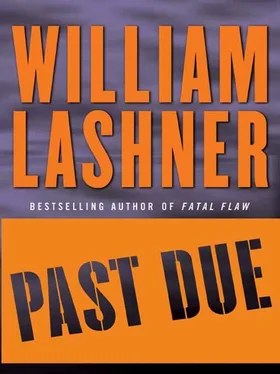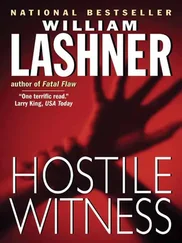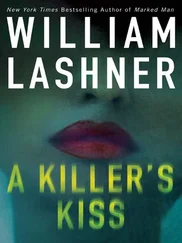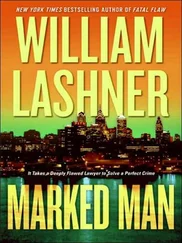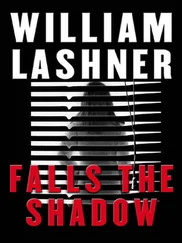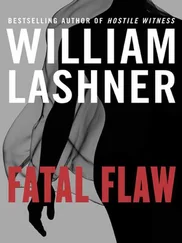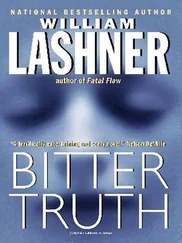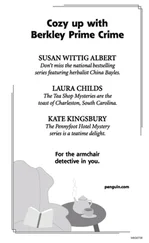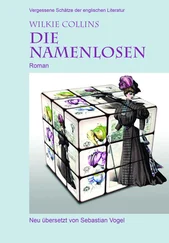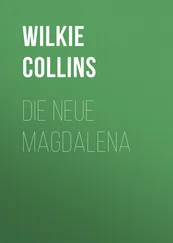“You said he wasn’t killed so he is most likely still alive,” called out the justice as he ran out of the stairwell, his voice coming in spurts between his gulps for breath. “And with everything that has been happening it only makes sense that he has come back.”
“I have to go,” I said, putting the keys in the car, opening the door.
“He’s come back for her.”
He was standing now right behind my car. I couldn’t pull out with him standing there.
“You have to let me go,” I said.
“You’re going to him now?”
“Yes.”
“And she’ll be there?”
“Yes.”
“Then take me with you.”
“Mr. Justice, he didn’t come back for your wife. If anything, she’s an afterthought. He came back for money he mistakenly thought he could recover here. And he came back for revenge.”
“Take me with you, Mr. Carl.”
“You don’t want to find him, Mr. Justice, trust me.” I checked my watch again. “I have to go.”
“Not unless I come too.”
He was standing behind my car. I couldn’t pull out with him standing there unless I ran him over, not that it wasn’t an attractive option. Still, I didn’t think Slocum would be so thrilled, the flattened party being a sitting Supreme Court justice and all. I thought about what to do, glanced at my watch. Skink was waiting.
“Get in,” I said.
BEFORE JUSTICE STRACZYNSKIhad a chance to snap shut his belt, I slapped into reverse, spun out of the spot, shifted into first and then second as I made my way for the exit. I slammed my brakes at the booth. The driver in front of me slowly searched her purse for the single coin that would give her exact change. I tapped the wheel impatiently. When my turn came I threw the card and a ten in the metal tray, told the man to keep the change, and was off. Up Broad Street, through the wilds of North Philly and then the northern stretches of Center City, past the Moorish-inspired synagogue, past the hideous State Office Building, past the tall white Inquirer Building, and then right around City Hall.
“Where are we going exactly?” said the justice.
“I want to show you something,” I said.
I continued south and then cut over, heading east into Queens Village. At one point I pulled into a parking spot, turned out the lights, checked my rearview mirror. I didn’t see anyone pull over behind me and, as the thin stream of traffic moved by, I didn’t see anything suspicious flow past. Maybe I had been wrong about Slocum, maybe he had just passed on my whereabouts to the justice and left it at that. Sloppy sloppy sloppy; I’d give him an earful when this whole thing was over. Satisfied, I pulled out again and took a now familiar route that led me onto the street with the burned-out storefronts, the yellow tape still wrapped around the entrances, where I stopped the car.
“This was where Lonnie Chambers died,” I said.
The justice’s jaw tightened, but he didn’t say anything.
“He was shot in the head and then his shop was burned around him so that his corpse was little more than a cinder. I just want you to know what we are dealing with, what kind of anger and rage and pent-up violence. He’s a bitter man seeking a bitter revenge.”
“I can handle Tommy.”
“No, Mr. Justice, that’s just it. You can’t. He has no real beef with me, but he thinks he does with you. Why don’t I let you out here?”
“My wife is with him.”
“He’s already killed at least two whom he thought betrayed him, including Lonnie. He thinks you betrayed him too.”
“And you intend to tell him that it wasn’t me.”
“That’s right.”
“And so he’ll know it was my wife. Do you realize what he might do to her, have you thought of that?”
I didn’t respond because he was right.
“Let’s just go, Mr. Carl,” he said.
I gave him a long look. He was staring ahead, his face set with both fear and determination. The sight of him strangely calmed me. His motivations were obscure, the source of his loyalties was unfathomable, and yet there was in him an undeniable bravery that I found comforting. I am, by instinct, a loner, but I didn’t mind just then having his bravery beside me.
The traffic on Columbus Boulevard, south of the movie theater and the strip joints and the Home Depot, was sparse. The road here was full of potholes, train tracks jogged between the lanes. When I saw what I was looking for, I did a U-turn across the tracks, across the northbound lanes, into a separate drive that serviced the piers in the day and was completely deserted at night. I drove down a bit until I reached the huge white sign Skink had mentioned and then pulled into a small parking area right beneath it. To our right was the pier where Joey Cheaps’s body had been found. To our left was that big ghostly boat.
“Let’s go,” I said.
As the justice climbed out of the car, I went into the trunk and pulled out a large blue flashlight and the suitcase. The suitcase was heavier now than it had been when I had taken it from Alura Straczynski’s studio. In addition to the old clothes that had been left there, I had filled it with everything that had been in the footlocker buried at Jimmy Sullivan’s house, including Alura Straczynski’s precious notebooks, and I had added the photographs, all of them taken down, finally, from my wall. I was bringing everything that had been demanded of me, everything except the money, but I was doing it at a time of my choosing.
Skink was waiting for us at the gate, but so well hidden in the shadows that if I hadn’t been looking for him I would have missed him completely. I would have to ask him sometime how he did that.
I introduced Skink to the justice and then Skink pulled me aside, none too pleased at the company.
“What is he doing here?” he said in a low voice.
“He insisted on coming.”
“Why didn’t you just insist on saying no?”
“He didn’t give me much of a choice, and he might be of use. His wife’s in there, right?”
“That’s right.”
“I figure he deserves a chance to say good-bye.”
“I don’t know. It’s hard to be stealthy with six shoes stomping.”
“We’ll be fine. We’ll split up. Straczynski and I will keep the bastards occupied while you search for Beth. When you find her, call the number I gave you.”
“All right.”
“But not before. I don’t want anything to endanger her, which also means no shooting.”
“There won’t be no shooting. I didn’t even bring my gun.”
“No gun?”
“Well, not the big one anyway.”
“Is the gate locked?”
“Was.”
The guard booth at the entrance was lit, but empty, and the chain-link gate, which had been fastened by a padlock, was open just enough for the three of us to slip through. Walking three abreast, Skink, me with the suitcase, and Mr. Justice Jackson Straczynski, we walked across the long wide pier, strewn with piles of scrap metal, walked past a long row of bright yellow school buses, walked toward the huge looming ocean liner moored to the side of the pier with great blue ropes.
“The SS United States, ” said Skink, when we stood in front of the massive boat. “Back in the day, it was something special, it was. Back in the day it was the fastest ship in the world.”
And so it was, back in the day, though that day had long passed. What it was doing on some squalid Philadelphia pier I couldn’t tell you, but there it was, the huge passenger liner, glowing dully in the dim city light. It was obviously once some great and gaudy ocean steamer, with its sleek dark body and two huge raked stacks, the red, white, and blue paint flaking as if from some foul disease. It floated high in the water, still proud and haughty even as it rusted away on the Philadelphia waterfront, a ruined relic of some bygone era, ready to be scrapped for steel to make refrigerators or Chevys. Its appearance there was so anachronistic and yet so perfectly apt it almost made me laugh. It was as if the past itself, in all its fetid glory, had floated up the Delaware to meet us.
Читать дальше
